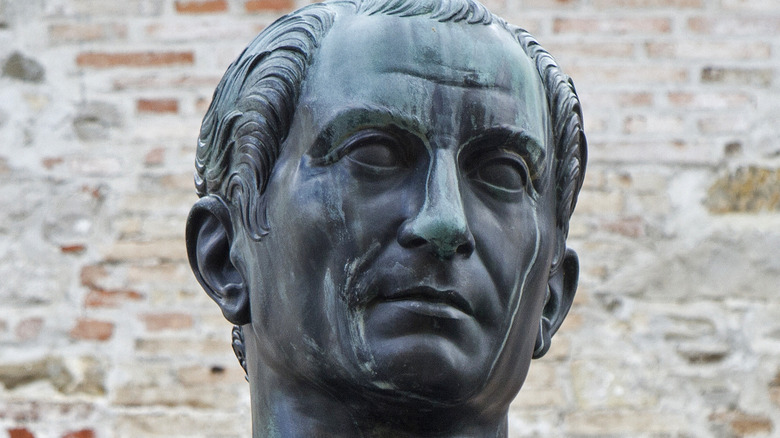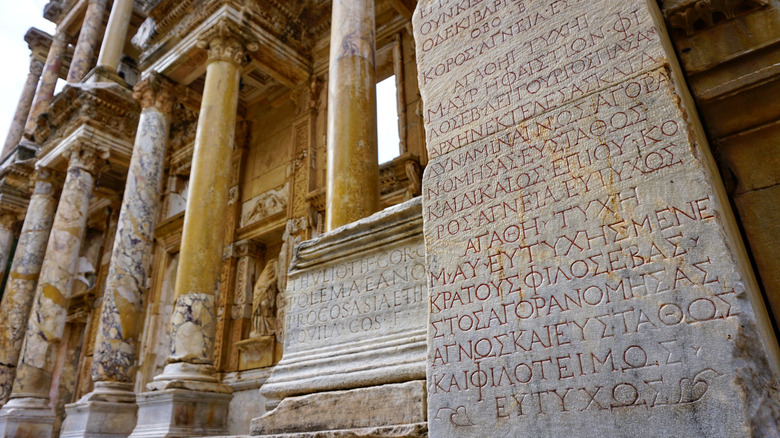Did Julius Caesar Really Burn The Library Of Alexandria?
The Library of Alexandria was a vast collection of knowledge never before assembled in recorded history. Thousands of scrolls containing all manner of written work from captured territories were housed within the library. Both the Library and Alexandria itself came to be known as a hub of scholarship in the ancient Mediterranean, according to Britannica. To the chagrin of many historians, though, this likely all came to an end when Julius Caesar burned the library during his efforts to escape the city after being outnumbered in enemy territory during battle.
Though it is likely true that the consul-turned-dictator did commit this act of vandalism, it was almost certainly not intentional, yet even today he is still held responsible for the loss of countless irreplaceable works. While even contemporary sources similarly believed Caesar's actions led to its entire destruction, this does not appear to have been the final end of the Library or its contents.
The loss of the Library of Alexander did not mean the loss of its knowledge
While the main contributing factor, the loss of the library did not necessarily mean the end of the collection, as copies of many works were present in nearby libraries and the Temple of Serapis, according to Time. Due to several scholars describing their continued use of surviving structures within the main complex, it is reasonable to assume that at least some portion of the original collection survived. As much of it remains lost to this day, it is unknown if either site remained by 415 CE as many other conflicts in the region could have similarly wiped them away. That year was, however, the final nail in the coffin for Alexandria as a nexus of education.
That was the year Hypatia, a renowned mathematician who adhered to the knowledge still barely present in the city, was killed by a mob for her interaction with pagans. Few intellectuals remained in the city after that, with Hypatia's death symbolizing for many the end of classical scholarship. While there were attempts to revive classical thought and literature during the Islamic Golden Age and European Renaissance, neither managed to mend the knowledge gap inflicted by the Library of Alexandria's loss.

